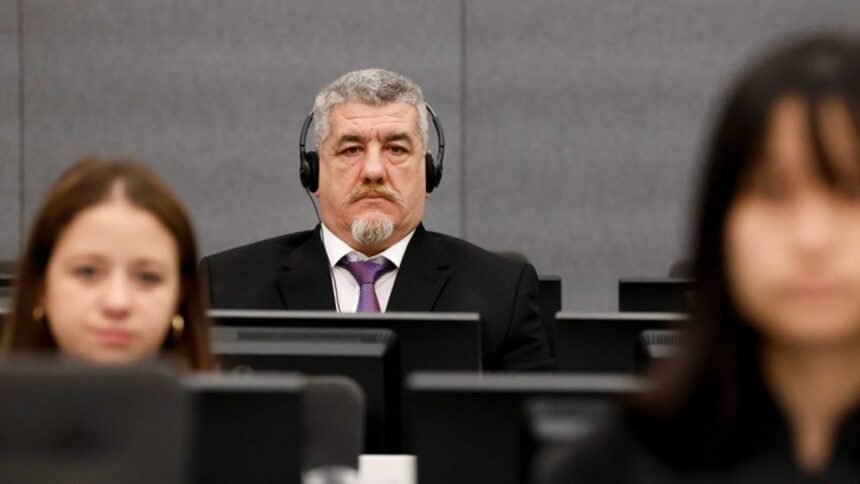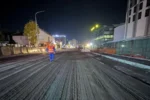In the first instance, Pjetër Shala, a former member of the Kosovo Liberation Army (KLA), was sentenced to 18 years in prison by the Kosovo Specialist Chambers in The Hague. On appeal, his sentence was reduced to 13 years. Despite both rulings, Shala has raised serious concerns regarding the judicial process.
Known as Commander Wolf, Shala spoke to Gazeta Nacionale from The Hague, outlining what he considers the major violations that occurred during his trial. He cites falsified evidence, lies, and inaccuracies, emphasizing: “My hope for justice is fading.”
Shala stresses that he was convicted for a murder he did not personally commit, as confirmed by the judges. Nonetheless, he is preparing an appeal to the Supreme Court.
He also discussed his arrest, the conditions in the Detention Center, and his daily routine, but was not permitted to comment on his contacts with other former KLA leaders in The Hague.
The interview was conducted in writing, in full compliance with the guidelines of the Kosovo Specialist Chambers.
Interview Summary
1. Arrest on March 16, 2021:
“The circumstances of my arrest were completely excessive. Some officers admitted the measures taken were entirely unnecessary. My children were threatened with firearms for over an hour, forced to remain silent, and deprived of their freedom. I did not resist in any way, yet the operation was conducted brutally. This event deeply traumatized my children and significantly disrupted their lives. The arrest was deliberately harsh and unjustified.”
2. Daily routine in detention:
“I wake up at 6:30 a.m., dedicating the entire day and evening to reviewing my case and preparing responses to evidence presented by the prosecution — which, in many instances, undermined my defense. Many documents were falsified, and some evidence was entirely fabricated. While this provides some hope that justice can be achieved, that hope fades almost daily. Most of the so-called verified information has never been corroborated by any material evidence. This work occupies nearly all of my time and energy each day — it is a full-time responsibility.”
3. Contact with other accused individuals:
“I would like to respond to this question, but according to the Administrative Office’s Media Communication Guidelines, I am not permitted to do so.”
4. Initial 18-year sentence for war crimes:
“When the verdict was announced, I could not believe it. Everything I presented in my defense was dismissed or ignored, while almost all evidence presented against me was accepted or interpreted as proven, even when witnesses — sometimes prosecution witnesses — contradicted it. There was no material evidence against me. I felt overwhelmed by an injustice far worse than anything I could have imagined.”
5. Appeals Chamber reduction to 13 years:
“The Appeals Chamber acknowledged that my trial did not fully comply with legal procedures, which is positive. However, not all consequences of these procedural violations were addressed. Certain elements not mentioned during the trial were suddenly used to convict me, without allowing me to respond appropriately. In these circumstances, it is almost impossible for anyone wrongly accused to hope for an acquittal. This is one reason I intend to continue my legal fight.”
6. Continuation of appeals to Supreme and Constitutional Courts:
“Absolutely. This is a core part of my defense. Justice must be served. There remain serious concerns regarding procedural and legal violations in my case. It is legitimate and necessary to raise these questions before competent judicial authorities.”
7. Main criticisms regarding the sentence:
“My primary concern is the complete lack of public hearings. The trial was conducted in a manner that prevented the public from following or reflecting on proceedings. While protecting certain witnesses may be necessary, it is not normal for a trial to be organized in such a way that citizens cannot hold the process accountable.”
8. Conviction for a murder he did not commit directly:
“I am innocent. I did not commit the act I am accused of. My conviction is particularly unacceptable because the manner in which the alleged murder occurred has been inconsistently explained over time. Medical reports and other evidence conflict with prior testimonies. Other accused individuals in the same case were acquitted, yet I was found guilty. Protective measures prevent me from fully explaining the anomalies in the case. It is unreasonable to hold me responsible for actions I did not commit or decisions I was not involved in.”
9. Serving the sentence:
“I wish to remain in the Detention Center in The Hague, where my defense team and lawyers are present. The ongoing procedures are legally complex, and removal from this environment would severely disrupt my defense at this critical stage.”
10. Message to the people of Kosovo:
“Love your country and remain united. Despite the difficulties, stay strong. Division will harm you. The people of Kosovo have suffered enough. Be free, proud, and happy together. This is my sincerest wish







